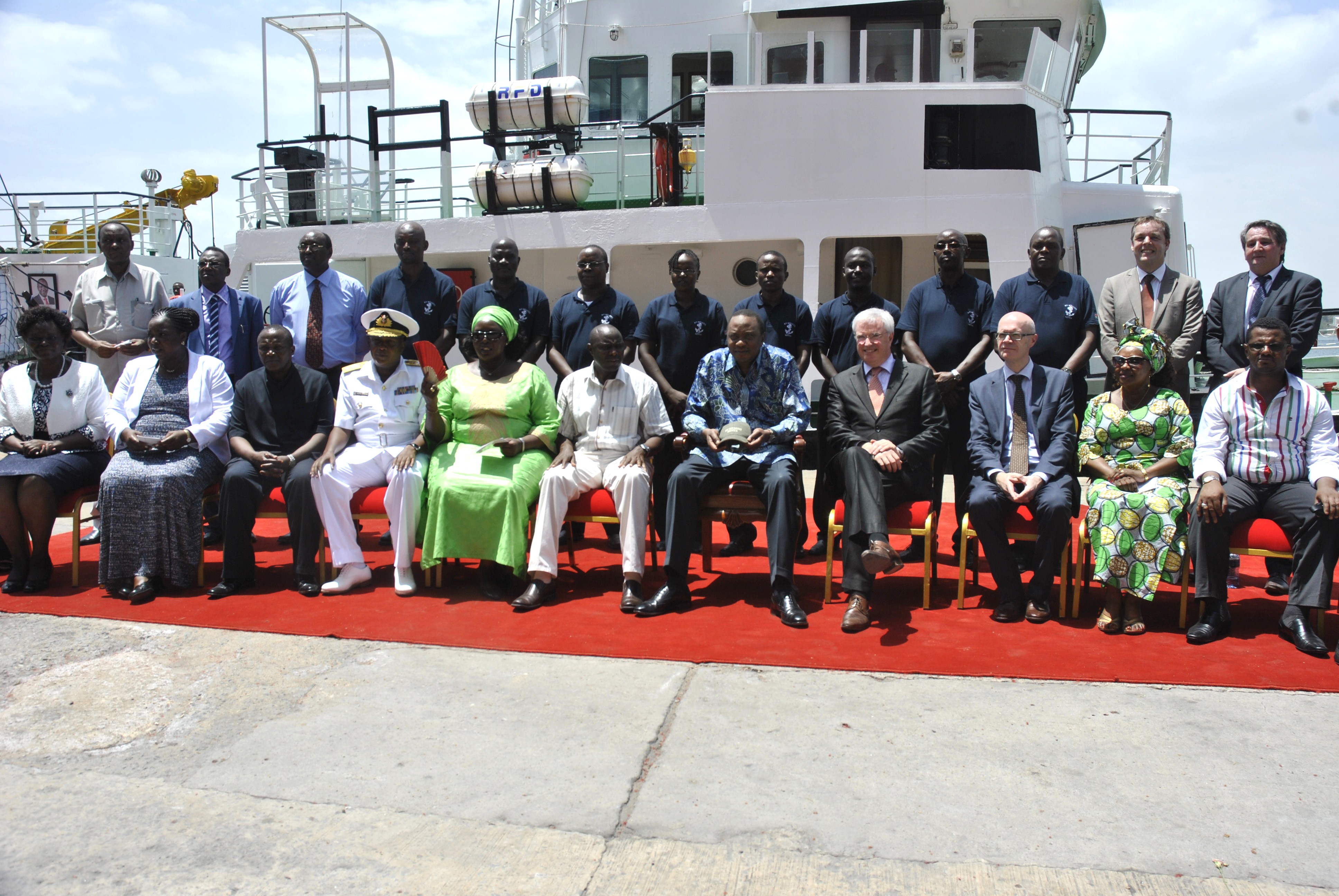
His Excellency President Uhuru Kenyatta when he officially commissioned RV Mtafiti on 27 January, 2014
The ocean is the new focal point in the discourse on economic growth and sustainable development, both at national and international levels. With this realization, Kenya, as a marine state, is in the forefront of building global consensus around best approaches to promote sustainable blue economy development. The 2030 agenda for sustainable development recognizes blue economy as central in advancing sustainable development. SDG 14 calls on all stakeholders to “conserve and sustainably use the oceans, seas, and marine resources for sustainable development”. Kenya, therefore, is conducting scientific research on the marine environment and the resources of its 200 nautical miles EZZ, therein to support sustainable exploitation and management. To achieve this goal, and other regional and international obligations KMFRI has been given the mandate to conduct extensive scientific marine research using RV Mtafiti.
-
RV Mtafiti Book - Marine Research towards Food Security and Economic Development in Kenya
Operational Research and Capacity Profile
RV Mtafiti is a multi-disciplinary oceanographic research vessel that plays a crucial role in the collection of ocean data and information in support of research into understanding the physical, chemical, and biological processes in the ocean as well as the scientific study of the role of the oceans in weather and climate. RV Mtafiti is therefore, is designed for fisheries acoustic research, oceanographic, hydrographic and geological investigation.
The vessel is equipped with two research laboratories: a biological and fisheries laboratory, and an oceanography and chemical research laboratory.
The vessel is therefore capable of conducting the following:
- Fish stock assessment surveys
- Ocean productivity surveys
- Marine biodiversity surveys
- Environmental & pollution monitoring
- Seabed mapping
- Benthic mapping
- Sediment surveys
Equipment
The success of Kenya’s Blue Economy initiative is increasingly dependent on generating high quality knowledge and information to inform policy and decision-making. Application of high quality scientific and technological innovations as well as proper infrastructure is therefore crucial. With aid from the government and collaborating institutions, KMFRI is equipped with high quality research infrastructure and equipment, which enable high quality data and information to be collected and analyzed.
Examples of equipment onboard are as follows:
-
EK 60 scientific echo sounder
-
Ocean surveyor Teledyne acoustic Doppler and current profiler
-
SBE 21 SeaCAT Thermosalinograph
-
CTD Rossette
-
Phytoplankton bongo net
-
Sediment van veen grab
-
Piston corer
-
Spotting telescope
RV Mtafiti Specifications Length: 55.5 m Breadth: 9.0 m Draught: 3.65 m Displacement: 693 m3 Engine power: 1192 KW Main propulsion: 2 Engines: ABC 6MDXC-750-080 A with controllable – pitch propeller Operational maximum speed: 14.5 knots; with 11 knots averaging speed Maximum endurance: 60 days No of laboratories: 2 Berthing: 47 persons crew & scientific staff
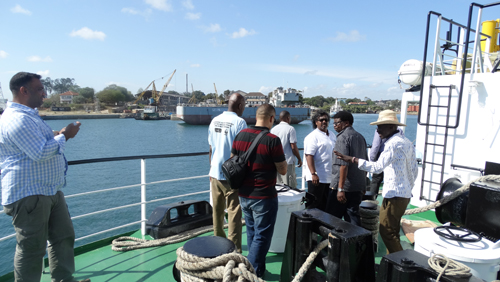
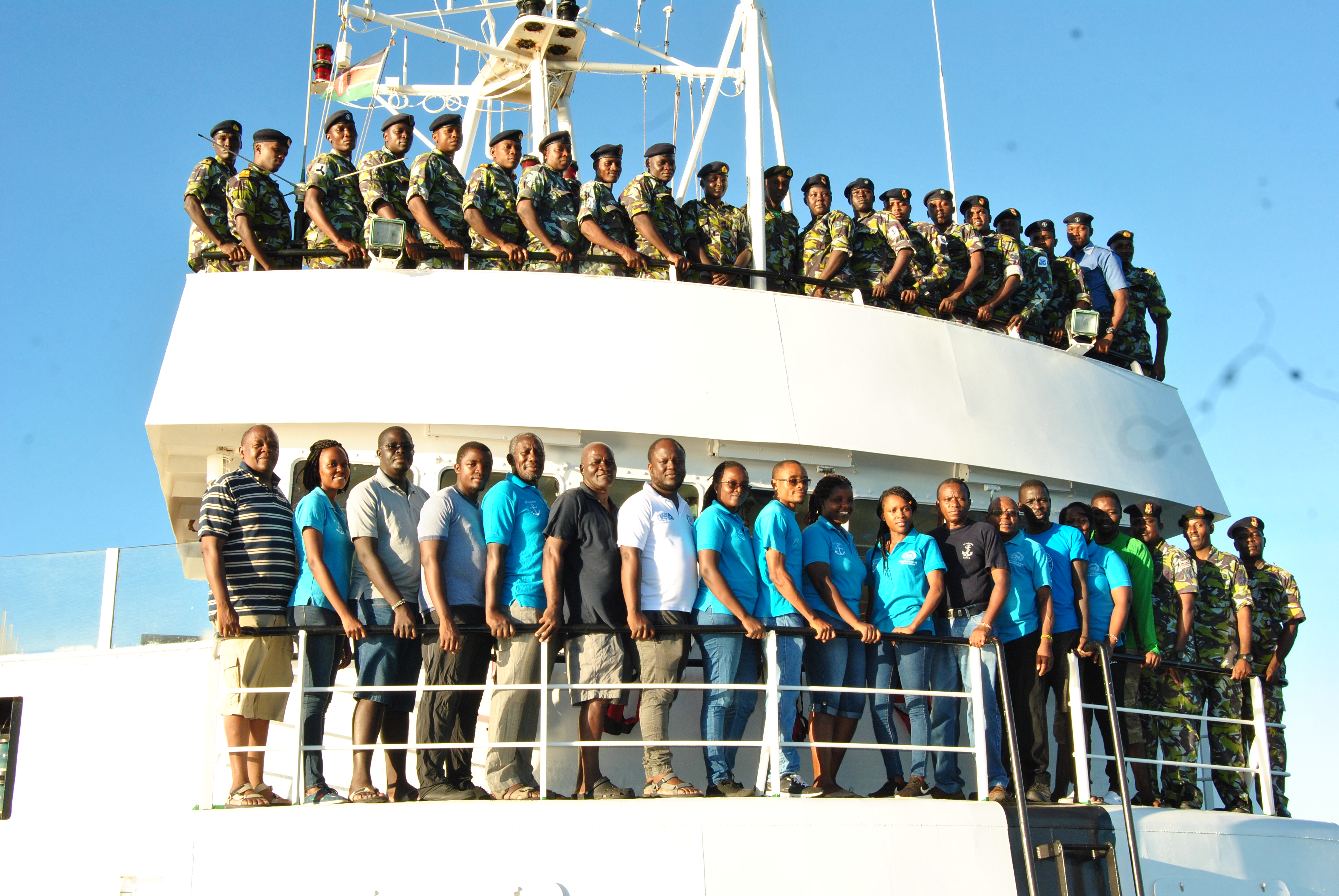
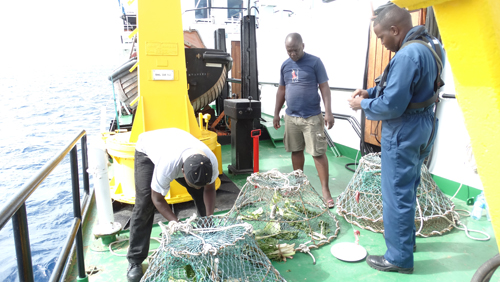
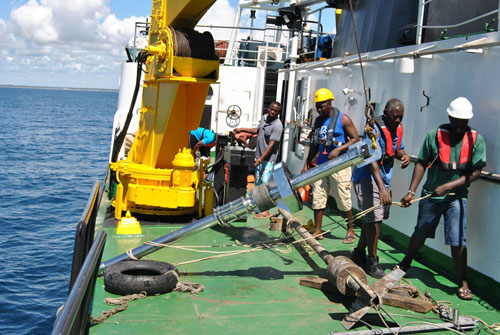
Ongoing Project and Research
The oceans and marine ecosystem are changing faster than before. From coral reefs bleaching, sea levels rise, ocean acidification, ocean warming invasive species among many other. Human activities on the other hand, such as marine pollution derived from plastics and heavy metals, are directly linked to the decline of ecological health of marine and coastal ecosystems. Kenya is facing these challenges, and KMFRI has been conducting research that will enable us to understand these emerging issues.
Some of the research and projects being conducted include:
- Fish biomass and catch distribution within Kenya’s EEZ
- North Kenya banks productivity
- Physical and biogeochemical oceanographic studies of Kenya’s EEZ
- Bathymetry mapping and marine geomorphology studies of sea canyons and sea mounts.
- Marine mammal sighting
- Monitoring of harmful Algal Bloom (HAB) within Kenya’s marine waters
Future Research
Recognizing the great potential of the blue economy, as means to advance conservation and sustainable management of ocean resources and a key pillar to sustain economic development, potential future areas of research that will be conducted by KMFRI include:
-
Marine bio prospecting and biotechnology
-
Deep seabed minerals and mining
-
Ocean renewable energy
-
Offshore wind energy
-
Desalinization
